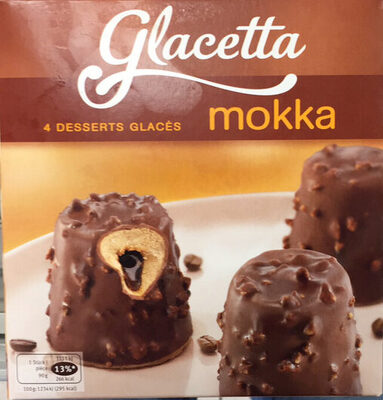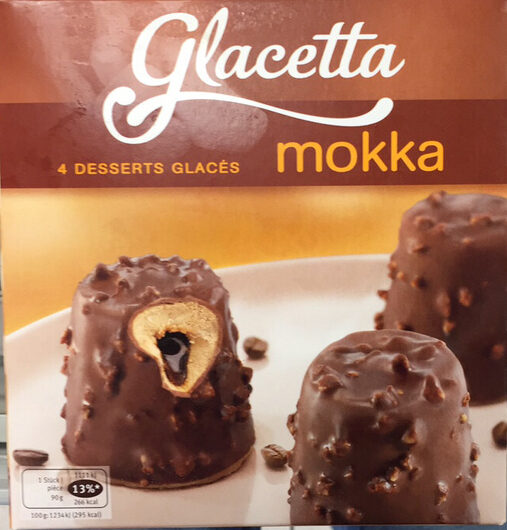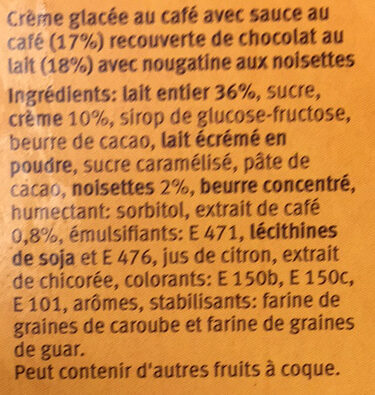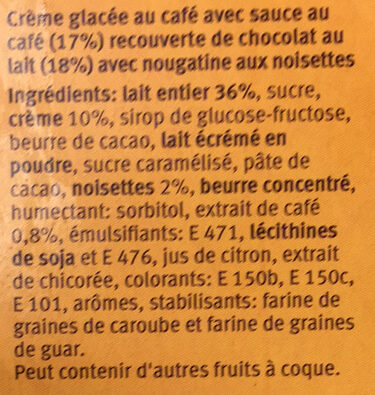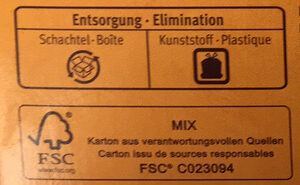4 Desserts Glacés Mokka - Glacetta - 480 ml
This product page is not complete. You can help to complete it by editing it and adding more data from the photos we have, or by taking more photos using the app for Android or iPhone/iPad. Thank you!
×
Barcode: 7617400046922 (EAN / EAN-13)
Common name: Crème glacée au café avec sauce au café (17%) recouverte de chocolat au lait (18%) avec nougatine aux noisettes
Quantity: 480 ml
Brands: Glacetta, Midor, Migros
Categories: Desserts, Frozen foods, Frozen desserts, Coffee desserts
Labels, certifications, awards:
FSC, FSC Mix
Manufacturing or processing places: Switzerland
Traceability code: CH-2440
Stores: Migros
Countries where sold: Switzerland
Matching with your preferences
Report a problem
Data sources
Product added on by openfood-ch-import
Last edit of product page on by torredibabele.
